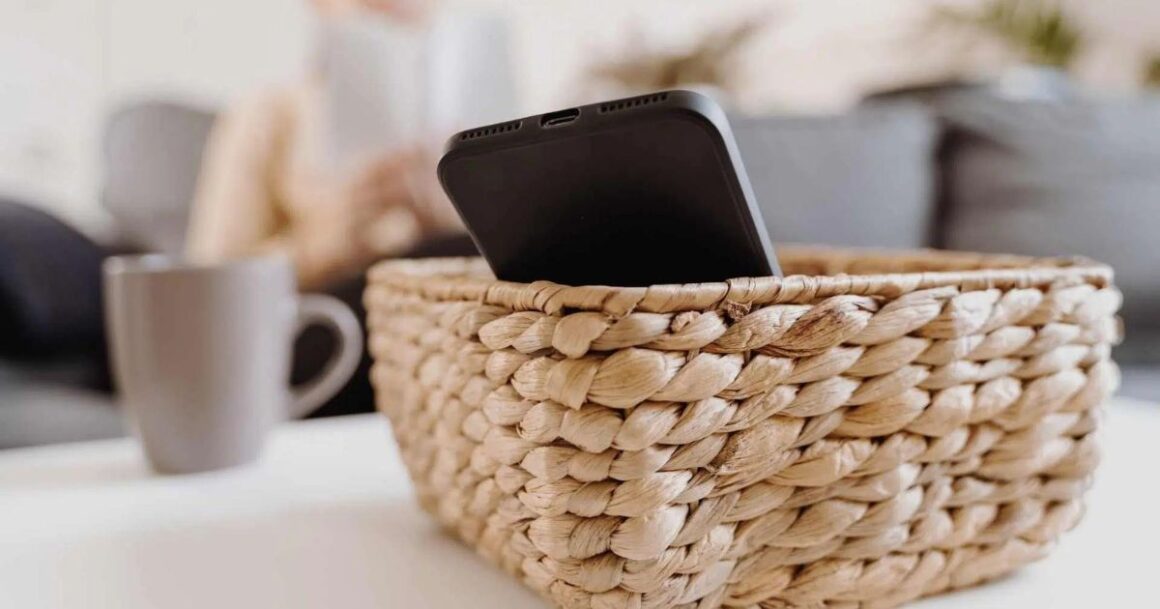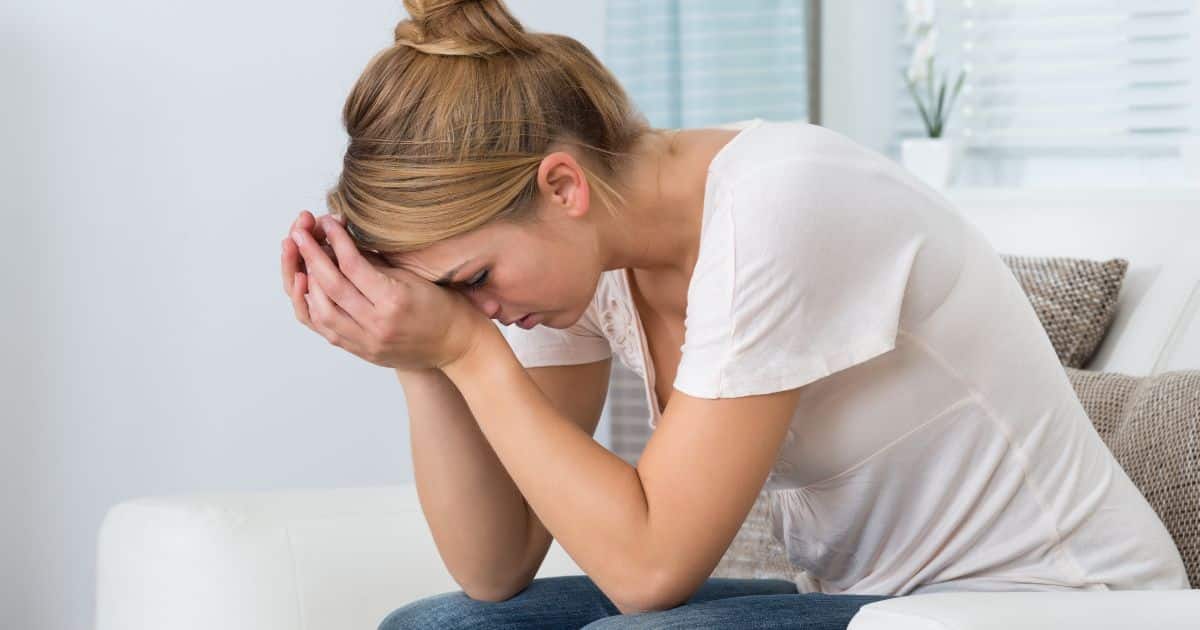The Amazing Benefits of a Digital Detox + How-to’s
Welcome to the benefits of a digital detox! I’m so glad you’re here!
Let’s face it. We spend too much time on our phones. We spend hours glued to our screens daily, on social media, reading articles, watching videos, and scrolling through reels.
Turns out, the endless rabbit hole that is the digital world we live in has some significant drawbacks to our overall well-being.
That said, taking screens breaks and limiting our exposure to media has significant benefits to our overall well-being.
In this article, The Benefits of Digital Detox, I will share the benefits of taking some much-needed time away from scenes and practical ways to decrease screen time and media consumption.
Sound good? Let’s dive in!
This post may contain affiliate links. Read disclosure here
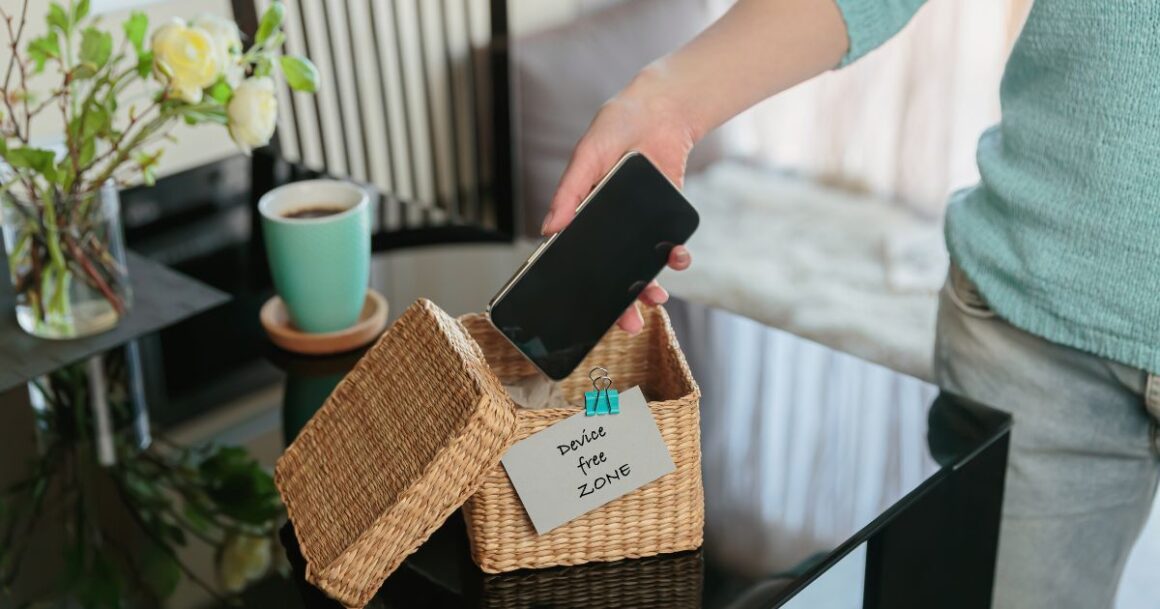
What is a digital detox?
A digital detox is when an individual refrains from using electronic devices such as smartphones, computers, tablets, and social media platforms.
It’s essentially a break or retreat from the digital world.
A digital detox aims to reduce the adverse effects of prolonged screen time, improve mental well-being, and foster real-world connections and activities.

The Negative Effects of Too Much Screen Time
While there are certainly some benefits to spending time online or watching TV, there are also some significant adverse side effects to too much screen time.
Excessive screen use is known to hurt sleep and mental health.
Studies have shown that chronic users of electronic devices often experience disrupted sleep patterns and even insomnia, leading to fatigue and stress.
Whether you go cold turkey or set more realistic goals, it’s clear that too much time spent on your phone, watching TV, or playing video games isn’t good for you or your well-being.
Excessive screen time can cause adverse side-effects
Excessive screen time, mainly when it involves social media, video games, and other online engagements, can have a wide range of negative effects on an individual’s mental, emotional, and physical health.
Eye Strain and Discomfort: Continual exposure to screens can cause digital eye strain, symptoms of which include dry eyes, blurred vision, and headaches.
Poor Sleep: Blue light can disrupt our body’s circadian rhythm. This makes it harder for individuals to fall asleep and can lead to insomnia or disrupted sleep. (source)
Related article: The Benefits of Blue Light Blocking Glasses
Decreased Physical Activity: Excessive screen time often means less time for physical activities.
This can lead to weight gain, reduced muscle strength, and other health complications associated with a sedentary lifestyle.
Impaired Social Skills: Spending too much time online can hinder the development of interpersonal skills, especially in children and teenagers.
Face-to-face interactions are essential for developing empathy, reading social cues, and building deeper relationships. (source)
Mental Health Concerns: Excessive use of social media has been linked to feelings of depression, loneliness, and anxiety. Comparing oneself to others online can lead to feelings of inadequacy and lower self-esteem. (source)
Reduced Productivity and Focus: Overexposure to digital devices, especially for recreational purposes, can lead to decreased productivity and a reduced ability to focus on tasks.
Addictive Behavior: Social media platforms and video games are designed to be engaging, and for some people, this can lead to compulsive behaviors or addiction, where they need to check their devices constantly.
Reduced Memory and Cognitive Abilities: Constant multitasking and fragmented attention due to excessive digital consumption can impair memory and cognitive function.
Increased Risk of Chronic Conditions: A sedentary lifestyle, often accompanied by excessive screen time, has been linked to a higher risk of some chronic conditions, including heart disease, diabetes, and obesity. (source)
Posture and Musculoskeletal Issues: Spending extended periods hunched over screens can lead to poor posture, back pain, and other musculoskeletal problems. (source)
Reduced Creativity and Outdoor Activities: Being constantly plugged in can reduce the time spent on creative hobbies or outdoor activities, which have numerous benefits for the mind and body.

What is blue light?
Blue light is electromagnetic radiation from many light sources, including household bulbs and digital screens like TVs and computers.
Blue light has a shorter wavelength than other visible wavelengths in the visible spectrum and emits more energy per photon.
This high energy level can affect the human body by increasing the risk of eye damage and disrupting the natural sleep-wake cycle. (source)
Related article: The benefits of blue light glasses
The Dangers of Blue Light
Excessive blue light is something everyone should be aware of.
The high energy wavelengths associated with blue light have been linked to various adverse health effects, including eye strain, fatigue, and even damage to the retina.
Studies have shown that long-term exposure to blue light can lead to more severe conditions, such as macular degeneration and cataracts.
Given the genuine risks associated with blue light exposure, we must limit our exposure whenever possible and take other measures to protect our eyesight.
Whether by staying away from screens at night or wearing special lenses, it’s up to each individual.
Risks associated with blue light exposure:
- Digital eye strain and fatigue
- Some Cancers
- headaches
- dry eyes
- Macular degeneration (AMD)
- Disrupted sleep-wake cycles (source)
My Personal Experience With Blue Light Blocking Glasses
I have about ten pairs of blue light glasses all over the house. Since I started wearing blue light glasses, I have had less eye strain and headaches, and my sleep scores on my Whoop have gone way up! 🙂
The Benefits of a Digital Detox or Screen Detox
1. Saves Precious Time
Time is precious, y’all! And all the surfing the interwebs and all that time on social media are time-consuming.
Spending time on the phone, watching TV, or playing video games consumes time, which is a non-renewable resource.
One of the most significant benefits of a digital detox is that it can help you focus on the present moment. After all, all we have is now. Right?
And, without screen distractions, you can spend more quality time with loved ones, rediscover and engage in hobbies or projects around the house, or relax!
How about that for a concept?! REST. Sounds pretty good to me.
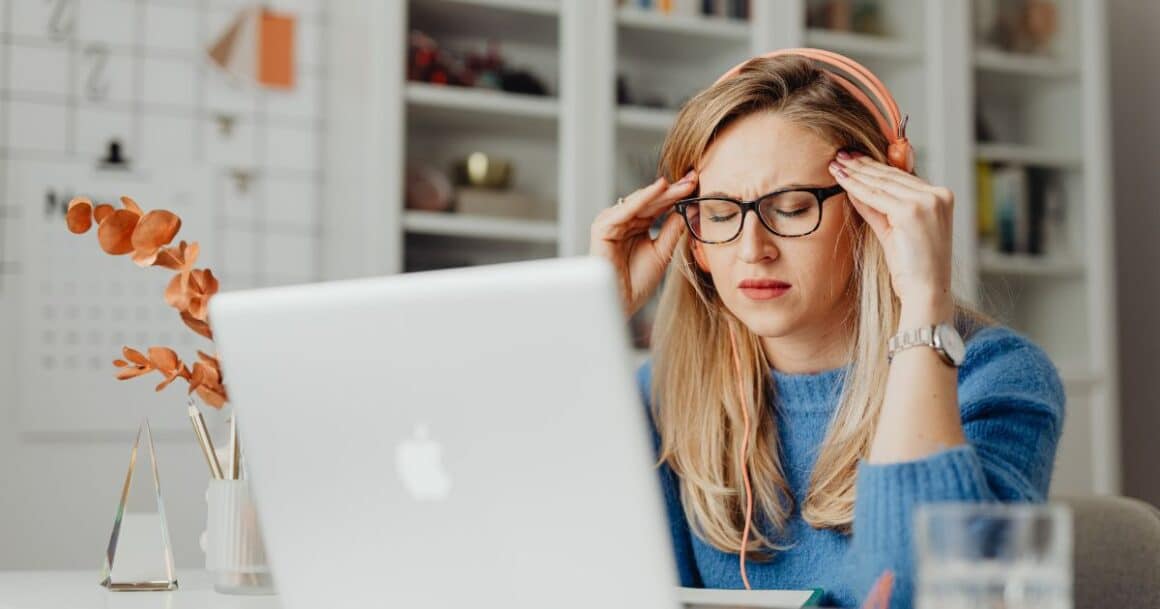
2. Helps with Stress
A digital detox is a deliberate reduction or elimination of screen time, especially from smartphones, tablets, and computers.
Engaging in a digital detox can specifically help alleviate stress in several ways:
Reduces in Information Overload
In the digital age, we are constantly bombarded with information, whether it’s from news outlets, social media, emails, or messaging apps.
Taking a break from it all can reduce this overload, giving the mind a break and reducing the stress associated with processing constant inputs.
Helps Eliminate Negative Comparisons
Platforms like Instagram or Facebook often present idealized versions of people’s lives, leading to negative self-comparison and feelings of inadequacy or jealousy.
Enhancing Sleep Quality
Again, the blue light emitted by screens can disrupt our body’s circadian rhythm, affecting sleep quality.
Limiting screens before bedtime and wearing blue light-blocking glasses can improve sleep quality, which is essential for stress reduction.
Increased Presence
Without the constant pull of digital devices, individuals can become more present in the current moment. This presence can encourage mindfulness, which has been shown to reduce stress.
Promotes of Real-world Connections
Face-to-face interactions, as opposed to digital ones, can foster deeper connections and feelings of belongingness, which helps with stress.
Encourages more physical activity
Physical activity reduces stress levels by releasing endorphins, natural mood lifters. Taking breaks from screens can allow more time to engage in physical activities like walking, yoga, or sports.
Helps with Productivity
Tasks can be completed more efficiently without digital distractions. Accomplishing tasks can give a sense of achievement and reduce stress related to our long to-do lists.
More time to chill
Freed-up time from a digital detox can be invested in relaxation techniques like reading, meditation, or simply enjoying nature — all of which can help reduce stress.
Can Break the Cycle of Dependency
Continuously checking devices can become a compulsive behavior, adding a layer of stress. Even a short detox can break this cycle, instilling a sense of control and freedom.
Related: Stressed? You need a stress management plan!

3. Helps Us to Appreciate The Simple Things
It’s easy to take life’s simple things for granted. But, unfortunately, I think we are all guilty of that.
But when we disconnect from our devices, we notice all the little things that make life special. Trust me.
There is so much joy everywhere!
When we free up our headspace, we are free to notice the little things.
Stop to smell the flowers, notice your Granddaughter’s cute expression when she wants your attention, or maybe catch the otherwise missed sunsets, the wind in the trees, or how dang cute your dog is when it’s dinner time. 🙂
How taking screen breaks can help us appreciate life’s simple things:
Present Moment Awareness
Without the pull of notifications or the urge to document every moment, one can truly immerse oneself in the present. This immersion often leads to a heightened appreciation of small, everyday experiences.
Reconnection with Nature
Without screens, many people find solace in nature, whether walking in the park, hiking, or simply observing a sunset.
Meaningful Interactions
Face-to-face conversations without the interference of phones or devices can lead to more profound and genuine connections.
Rediscovering Old Hobbies: A digital detox often creates space for activities that have been sidelined. Whether drawing, reading a physical book, playing a musical instrument, or cooking – engaging in these activities can be a joyful reminder of simple pleasures.
Sensory Appreciation: Our senses get dulled from too much screen time and media.
When we take a break from the digital world, it can heighten our senses. The sounds of birds chirping, the texture of grass underfoot, the aroma of freshly baked bread – Sounds good, right?
Appreciation of Silence: Silence is golden. and rare in this always-on digital world we live in. Turn it off and listen to the silence. It’s calming and can bring such clarity! It’s a beautiful thing.
Simple Daily Rituals: Simple routines and rituals, like making coffee, watering plants, reading a book or writing in a journal, gain prominence when we spend less time on our phones or watching TV.
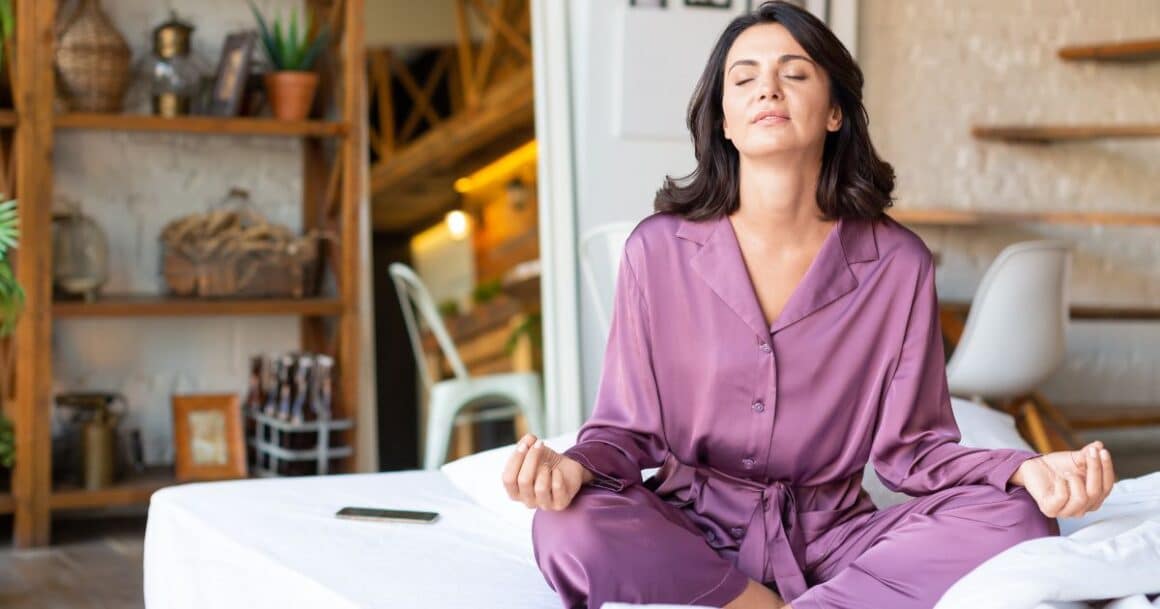
4. Can Improve self-esteem
Less screen time can positively affect self-esteem by reshaping how we perceive ourselves and our surroundings.
Here’s how it can contribute to improved self-confidence and self-worth:
Reduction of Negative Comparisons
As I’ve touched on earlier, one of the significant impacts of platforms like Instagram or Facebook is that they often present a curated, idealized version of people’s lives, which is not reality.
This can lead to feelings of inadequacy or jealousy. By taking a break from these platforms, we can avoid the comparison trap and foster healthier self-esteem and self-worth.
Mindful Self-awareness
Being present and disconnecting from digital devices gives us space to reflect on our values, aspirations, and accomplishments.
This personal time of introspection can lead to a more grounded sense of self-worth.
Reducing Dependency
Over-reliance on digital affirmation (likes, comments, shares) can harm self-esteem.
Taking consistent breaks for media and screens can break this dependency, helping us to find validation from within rather than from external feedback.
Improved Real-world Interactions
Face-to-face interactions can be more meaningful and genuine without digital distractions. Healthy social interactions are crucial for reinforcing self-esteem.
Improved Mental Clarity
Without the constant barrage of digital information, we can give our experience clearer thinking, leading to better decision-making and a more positive self-perception.
Recognition of Intrinsic Worth
Detaching from the digital realm, even temporarily, can remind us that our worth isn’t tied to our online presence or digital popularity.
Related article: Self-care Ideas for Women

5. Improves Physical Health
Taking breaks from media and screens can profoundly impact our physical health.
Reduces Eye Strain
As I’ve mentioned, extended screen time can lead to computer vision syndrome, which includes eye strain, dry eyes, and blurred vision.
Taking consistent screen breaks can help alleviate these symptoms.
Prevents Postural Problems
Prolonged screen usage often results in poor posture, leading to back and neck pain. Taking breaks can remind you to adjust posture or engage in stretches.
Encourages Physical Activity
Physical activity is essential for overall health, including cardiovascular health, muscle strength, and flexibility.
Breaks from screens and media can free up time for more physical movement, be it taking the dog for a walk, doing light stretching exercises, doing household chores, or even hitting the gym.
Can Reduce Risk of Chronic Conditions
Extended sedentary behavior, like sitting in front of a screen for hours, has been linked to a higher risk of obesity, diabetes, and heart disease.
Weekly Digital detoxes can promote physical movement, reduce health risks, and improve overall wellness.
Enhances Neurological Health
Engaging in non-screen activities, like reading a physical book, playing a musical instrument, or solving a puzzle, can stimulate different brain parts, promoting cognitive flexibility and reducing the risk of neurodegenerative diseases. (source)
Related article: Healthy Habits for Women Over 40+
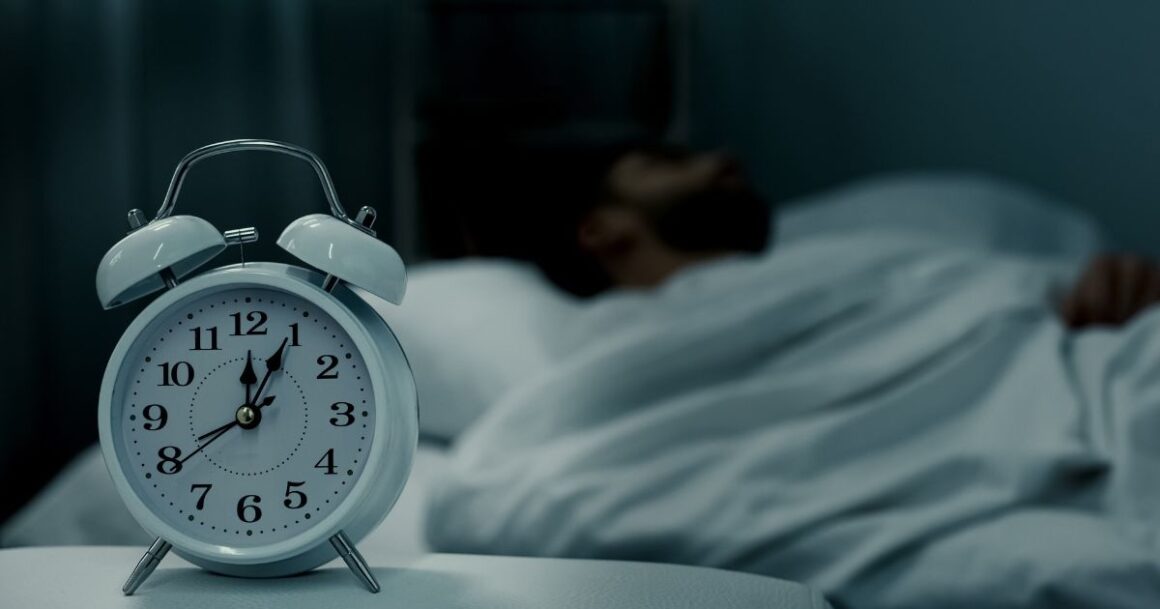
6. Less Screen Time Equals Better Sleep.
In case you haven’t noticed that one of the most significant benefits of a digital detox is improved sleep quality, I thought I would review it more extensively.
Our bodies regenerate themselves while we sleep. Therefore, lack of sleep or poor sleep quality will 100% affect your mood and health.
Reduced screen time and media consumption, especially before bedtime, can directly impact sleep quality. Here’s how:
Blue Light Emission
As I’ve already touched on, digital screens, including smartphones, tablets, computers, and TVs, emit a type of blue light.
When exposed to this light, especially during the evening hours, it can interfere with the production of melatonin, the hormone responsible for regulating sleep.
A reduction in melatonin can delay sleep onset, decrease sleep duration, and lead to poorer sleep quality.
Too much Stimulation
Media can be stimulating, whether it’s the latest news, an exciting movie, or engaging social media content.
Consuming stimulating content like the news, action movies, or, worse, scary shows before bed can increase brain activity, making it harder to wind down and fall asleep.
Disruption of Circadian Rhythm
Our bodies operate on an internal clock, or circadian rhythm, determining our sleep-wake cycles.
Exposure to screens late into the night can shift this rhythm, making it harder to fall asleep at a regular time.
Increases Stress and Anxiety
Some content consumed through media can induce stress, whether it’s distressing news, work emails, or even suspenseful shows.
Elevated stress levels are associated with increased cortisol production, a hormone that can disrupt sleep. (source)
Can Cause Discomfort
Prolonged screen time can lead to physical discomfort, especially on smaller devices like phones or tablets.
Eye strain, headaches, or tension in the neck and shoulders can make it more challenging to get comfortable and fall asleep and can disrupt sleep in the night.
It keeps you up too past your bedtime.
Sometimes, the sheer act of browsing or watching media can unintentionally extend late into the night. We need our beauty sleep, folks! (source)
Can Interrupt Sleep Cycles
Keeping devices, especially phones, in the bedroom can interrupt sleep. Notifications, messages, or calls can wake one up, leading to fragmented and less restorative sleep.
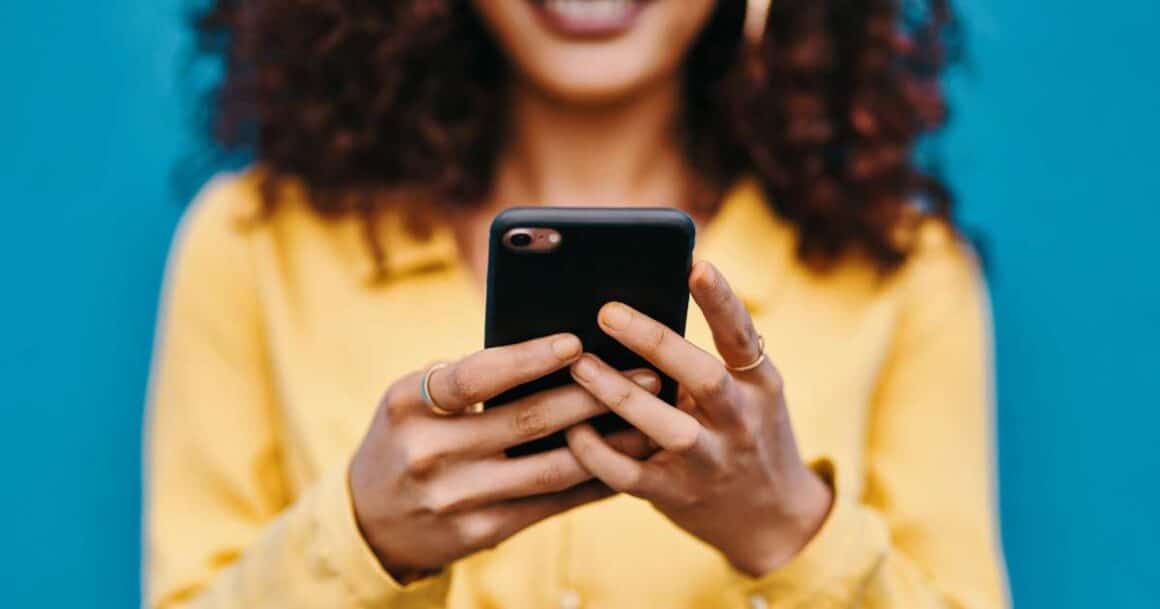
The Disadvantages of a Digital Detox
I believe there are ZERO disadvantages of less screen time unless you are trying to go cold turkey.
If social media provides comfort, you must find alternative ways to achieve comfort while detoxing or limiting screen time.
If you feel bored without your phone, TV, or video games (and you will!), You will need to fill in the gaps with new activities.
Don’t go cold turkey; instead, wean yourself off slowly
Going cold turkey can be painful, so weaning yourself off slowly while replacing the time with new activities is the ticket to success in digital detox.
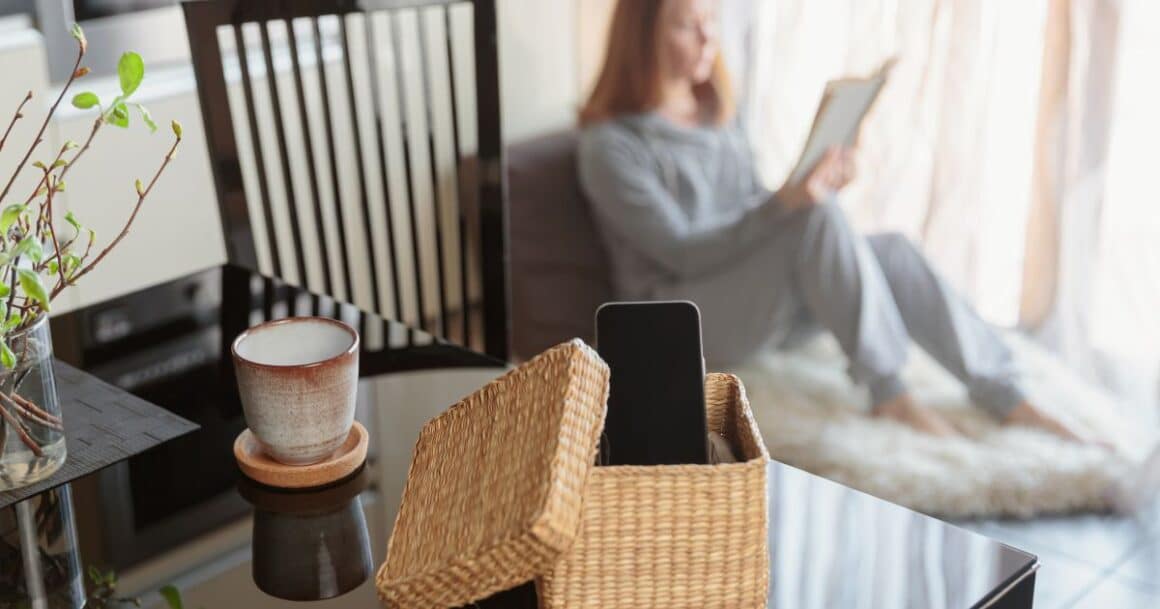
Digital Detox Tips: How to Do a Digital Detox
Schedule phone breaks
Consider taking at least three scheduled phone breaks per day. Set the alarm (you guessed it, on your phone) to remind you that it’s break time to utilize a screen time app.
Create NO PHONE ZONES
The dinner table is an excellent place to start. First, collect all cell phones in a basket at dinner time. Then, take the time away from phones to visit with your family. Maybe play a game of high-low?
Track Your Screen Time. There’s Apps for that.
Several apps can track your phone use and give detailed information about how long you use each app. This information may surprise you!
You probably spend way more time on your phone than you think.
Check out this resource for the latest and greatest screen time and digital detox apps.
Use the Screen Time Feature
If you have an iPhone, you can use the screen time feature that tracks how much time you and your kids spend on apps, websites, and more.
This way, you can make more informed decisions about how you use your devices and set limits if you’d like to.
Visit Apple Support to learn more.
Forget your phone (on purpose)
Do you need your phone to take the dog for a walk? What about going outside and working in the garden? Do you need your phone while taking a bubble bath?
If we’re being honest, the answer is no. However, leaving our phones behind here and there can help lower our daily screen time by more than you think.
Disconnect at night before bedtime.
Set a time every night to turn off your phone, or set the screen time app up so that your phone automatically turns off every night at the same time.
You can also set it up to still receive text and phone calls from selected contacts.
As a result, you don’t have to worry about missing an emergency, so you don’t have to worry and better relax.
Set your phone to Do Not Disturb mode
This mode will send your calls to voicemail and silence all notifications.
You can still receive text messages, but they won’t light up your screen or make noise.
The do-not-disturb mode is an excellent way to avoid distractions while remaining available for emergencies.
If you have an iPhone, you can set it to Do Not Disturb mode by going to Settings > Do Not Disturb.
Turn off all notifications.
Do we need to know whenever someone likes our Instagram posts? Do we need to be alerted that our friend from high school is feeling “excited” about this, that, or the other thing?
Not to say we can’t be interested in what’s up on the gram or Facebook; I’m just saying we shouldn’t be alerted to it every second of every day!
It will all be there when you have the time to scroll.
Turning off notifications is so freeing!
To do this on an iPhone, go to Settings > Notifications and scroll down until you see the app you want to turn notifications off for.
Then, tap the toggle next to Allow Notifications to turn them off.
Consider deleting some of your social media apps.
How many social media platforms do we need? I mean, really!
I recently deleted Snapchat and have never looked back! Just do it. You can always download them again if you can’t live without them. You will never know until you try.
The idea is to simplify.
Use an old-school alarm clock instead of your phone’s built-in one.
Consider using an old-school alarm clock instead of your phone’s alarm.
Using an alarm clock, you may not be tempted to check your phone first thing in the morning and start scrolling through your feed mindlessly. Plus, it’s just nice to have an actual alarm clock again.
Conclusion: The Benefits of a digital detox.
Embracing a digital detox offers a myriad of advantages.
For those swamped by technology’s relentless tide, a digital detox can help alleviate stress, improve sleep, and provide a fresh outlook.
If a rejuvenating break sounds good, consider stepping away from your devices and granting yourself a respite.
The renewed sense of tranquility and clarity you’ll experience might be just what you need.
Happy Detoxing! 🙂
XO, Christine

I’ve been keeping it real since 1963. 🙂
I’m a child of God, a wifey, mama, grandma, full-time creative, domestic engineer, and self-care enthusiast.
I am obsessed with all things makeup and skincare and love getting my hands dirty out in the garden, my art room, or in the kitchen, whipping up something yummy for the fam.
I’m always down to chat and love collaborating with other creatives and brands alike!
Feel free to reach out anytime!




